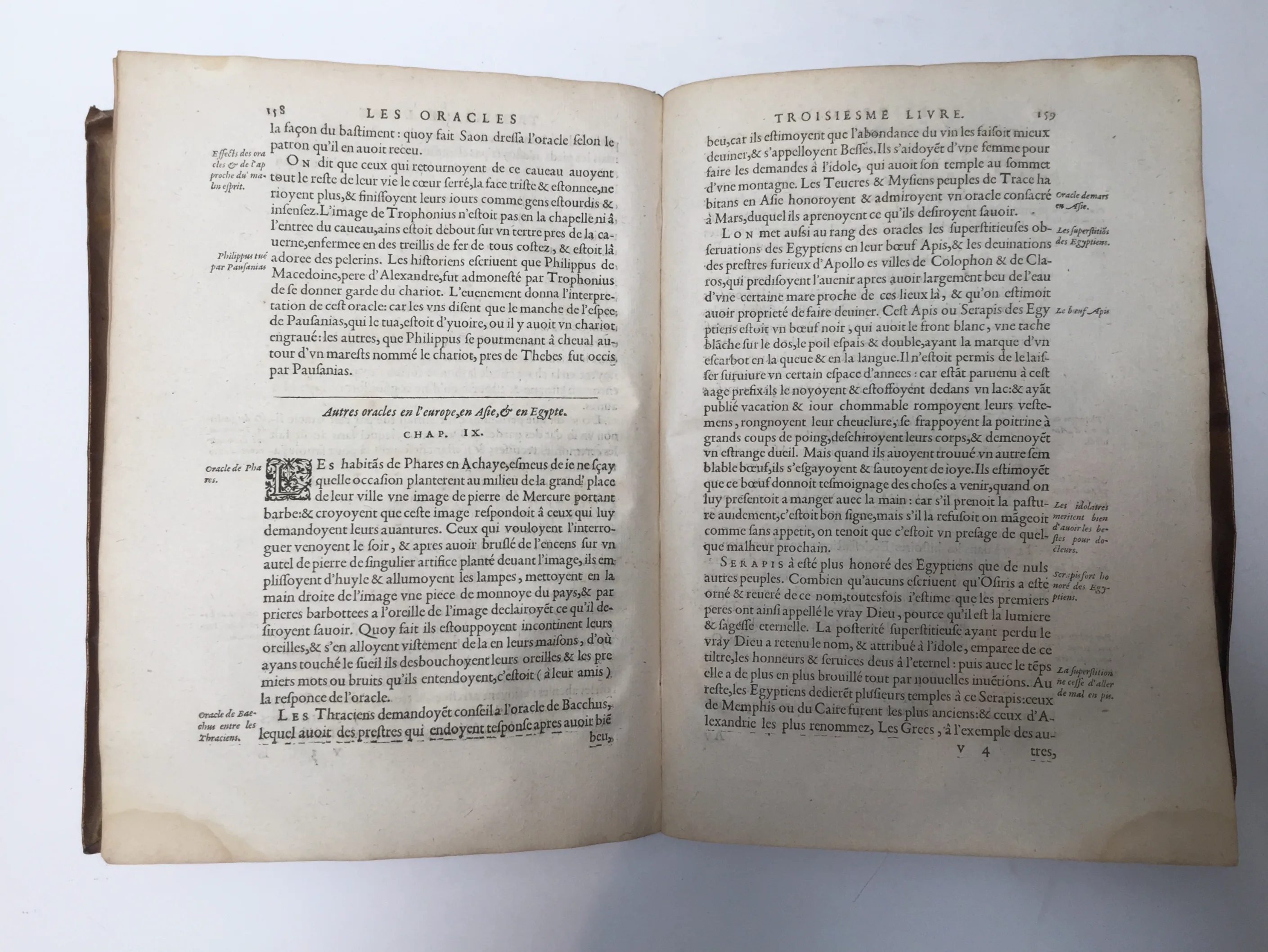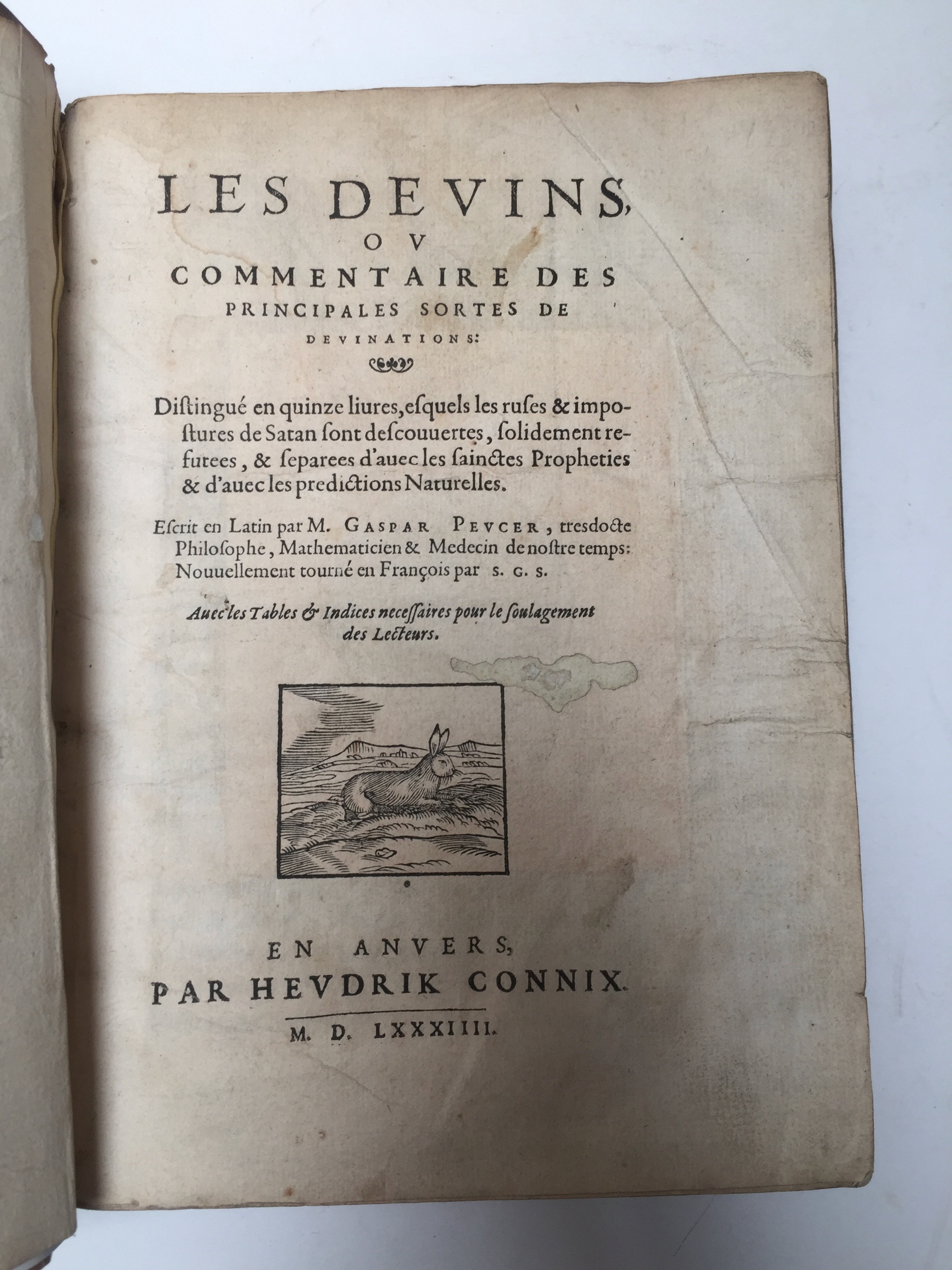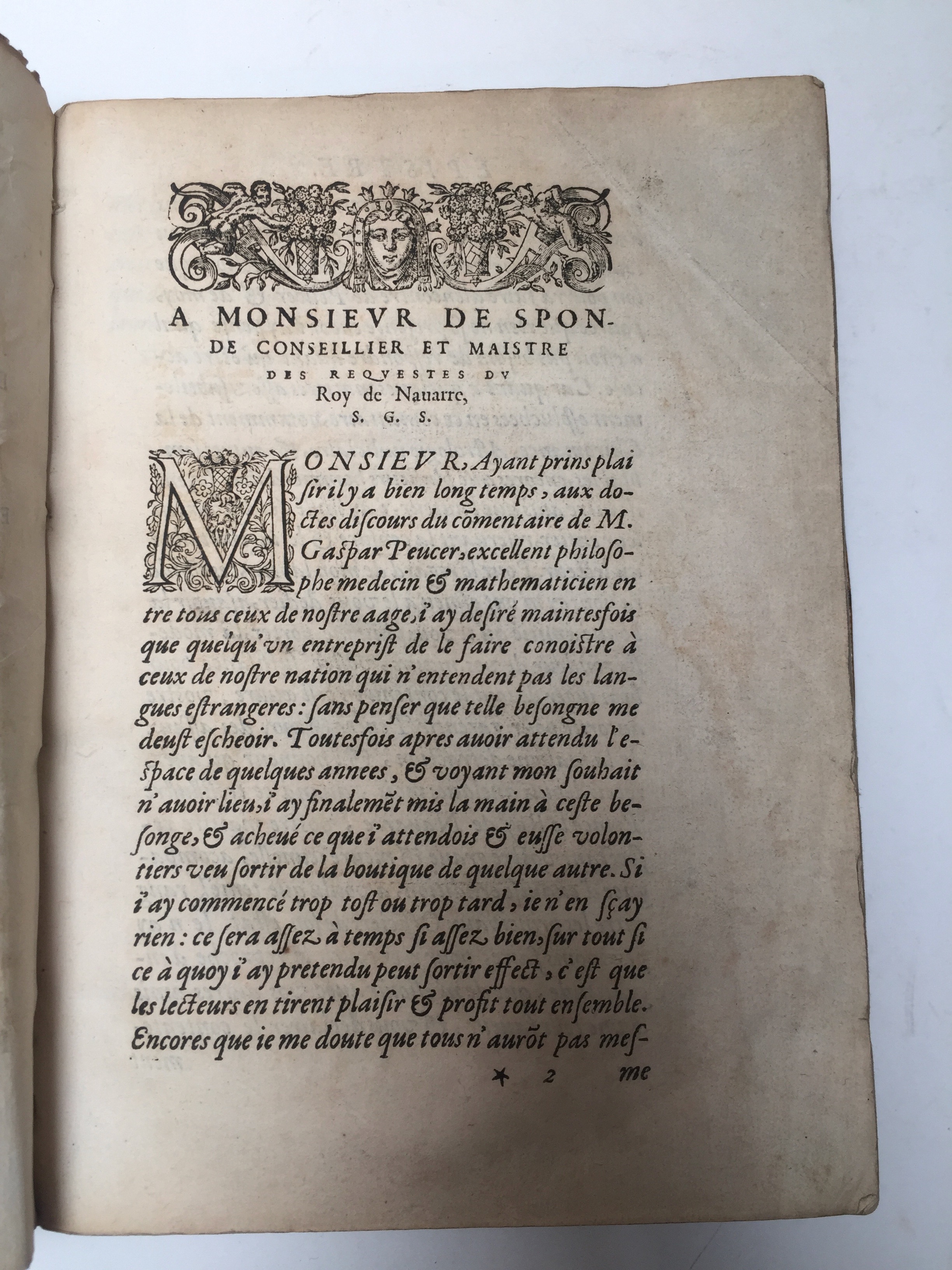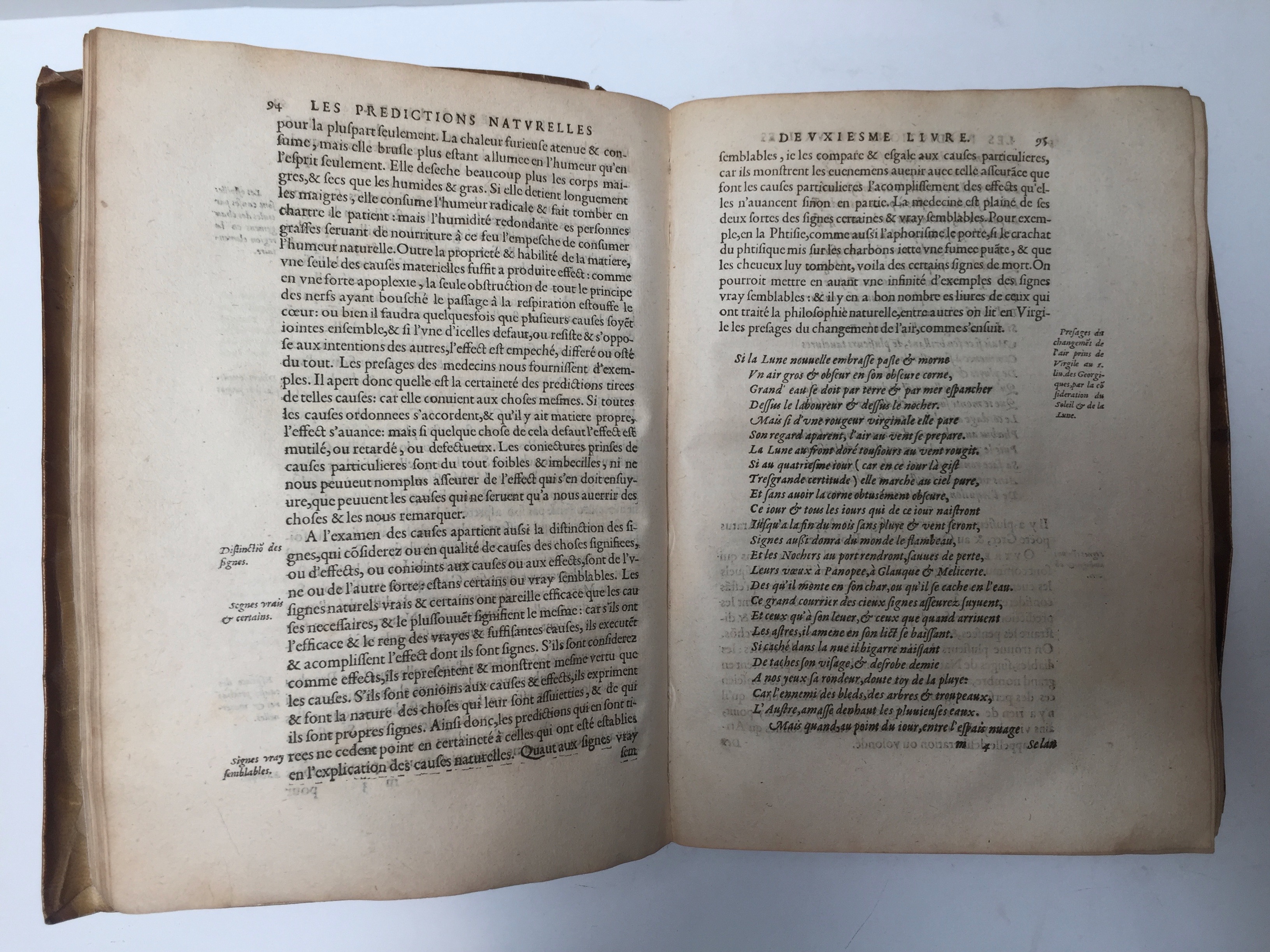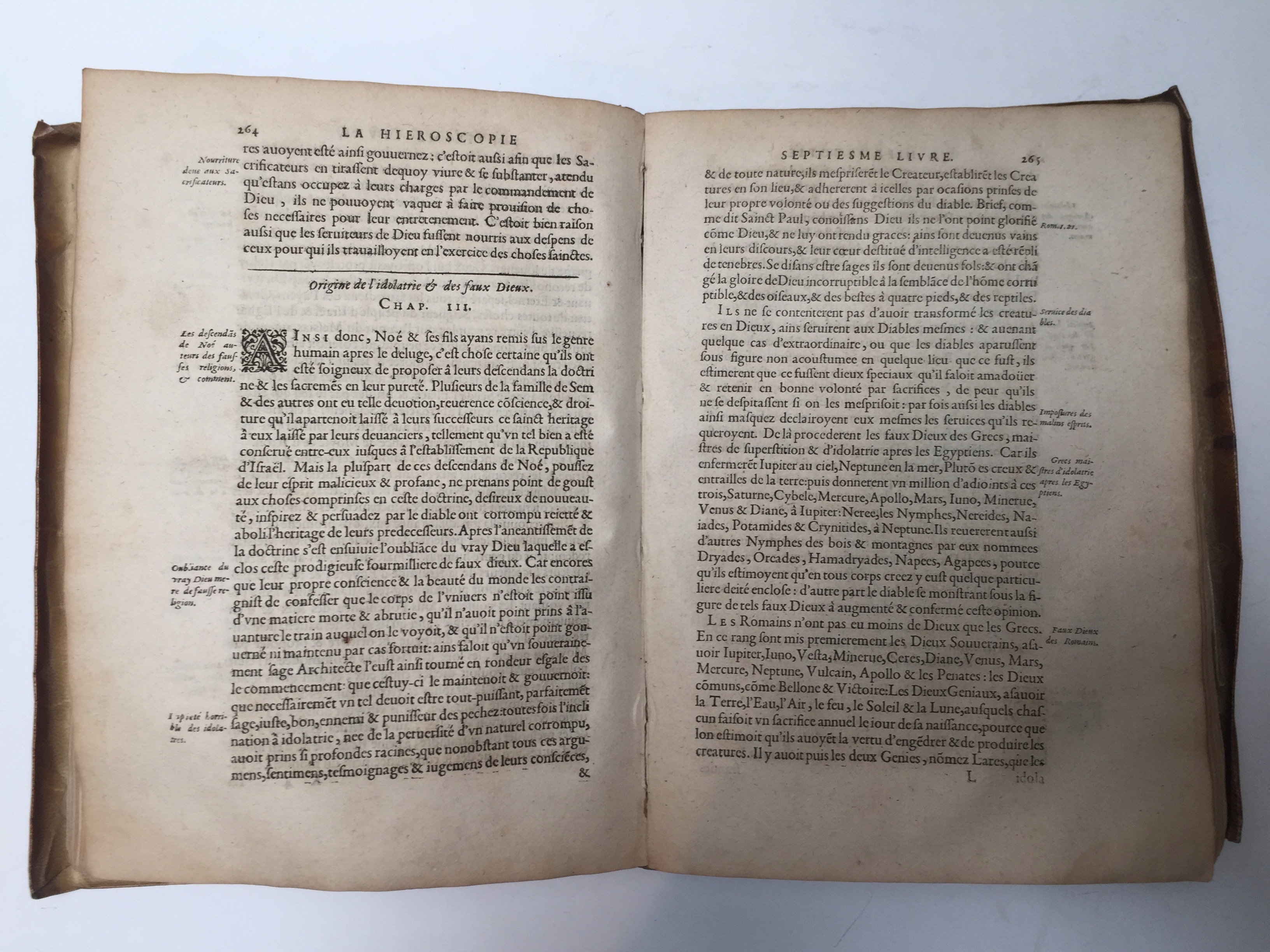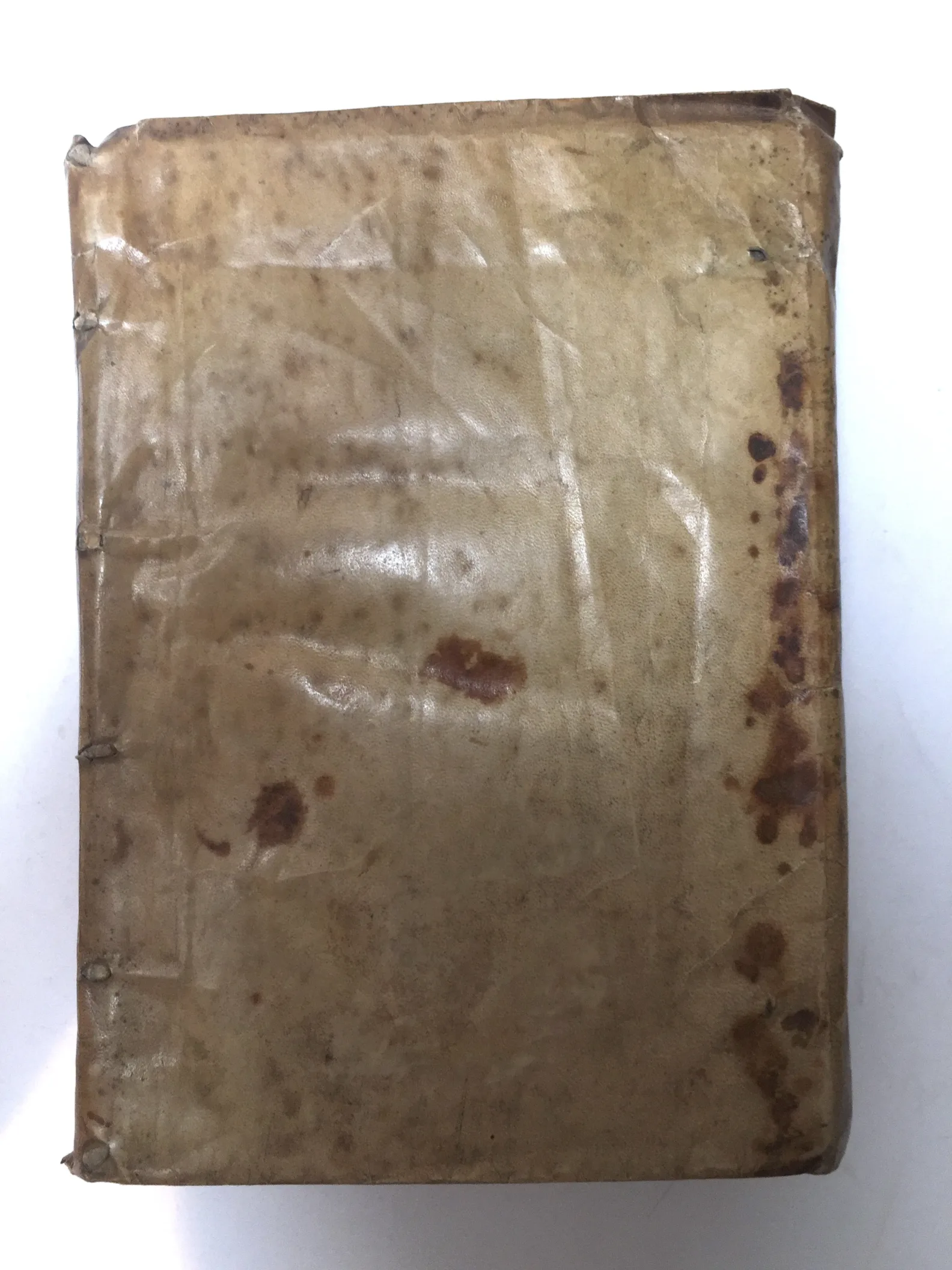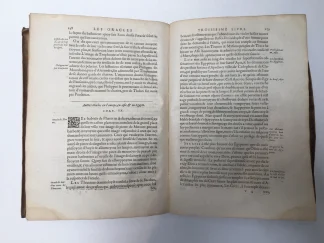PEUCER, Kaspar
Les devins, ou Commentaire des principales sortes de deuinations
Antwerp, Par Heudrik [i.e. Hendrik] Connix, [1584]£2,500.00
4to. pp. [xii] 653, [xxvii]. *4, **2, a-z4, A-Z4, Aa-Zz4, Aaa-Qqq4. (Qqq4 blank). Roman letter, some Italic. Printer’s woodcut rabbit on title, grotesque woodcut head-pieces, floriated and grotesque woodcut initials, woodcut tail-pieces, small woodcut table in text, C18th engraved armorial bookplate on verso of title ‘Ex Bibliotheca Publica Collegii Divio-Godranii’. Light age yellowing, occasional very light marginal spotting, small hole on title touching just frame of woodcut device, minor waterstain to lower outer blank corner on a few quires, t-p fractionally dusty. A very good, crisp copy in contemporary limp vellum, yapp edges, remains of ties, a little soiled.
Second edition in French of Peucer’s encyclopaedic work on divination; “it seems to have been the most influential of his numerous writings which were concerned with the varied fields of medicine, astronomy, mathematics, natural history, and psychology”, (Thorndike VI p. 493). On the whole the work approves of divination in natural circumstances – reading dreams, for instance, or the stars, but agrees with the Bible in condemning certain branches of divination related to demons and witchcraft. Peucer’s bias is unflinchingly Protestant, denying the possibility of Miracles, and he attributed the successfulness of relics and invocations of saints to demons rather than divinity.”
After discussing divination in general, he turns to oracles and theomancy, then to magic, which he thus incorrectly implies is a variety of divination, whereas the opposite is true, then to divination from entrails, to augury and aruspicina, to lot-casting under which he puts geomancy and divining from names and numbers and to dreams and their interpretation. Next he considers medical prognostications, meteorology and weather prediction, physiognomy and chiromancy, astrology, and last prodigies and portents” (Thorndike VI p. 495). He is highly suspicious of Alchemy as a purely devilish art on the one hand, but on the other entirely approving of Astrology, which he himself put to practice and considered essential to the study of medicine.
Kasper Peucer (1525 – 1602) was a prominent physician and scholar who studied with Melanchthon (and married his daughter) at the University of Wittenberg where he was appointed in turn professor of philosophy, mathematics, and medicine. His pupil, John Garcaeus, called Peucer the “most celebrated professor of mathematics in this academy”. Peucer’s religious views were influenced by his close relationship with Melanchthon, which deviated from the local Lutheranism in its Calvinist colourings, and when Melanchthon died in 1560 Peucer became a prominent religious authority. Although he climbed the academic ranks quickly, and gained appointment as physician to Augustus I, Elector of Saxony, his “Crypto-Calvinist” beliefs were his downfall. In 1574, letters discovered by his patron that expressed a desire to convert Augustus to Calvinism led to a twelve year imprisonment in Königstein Fortress. After his release from prison in 1586, he became physician to the duke of Anhalf, where he remained until his death in 1602.
Hozeau & Lancaster II 4860. Brunet IV 582 “De tous les ouvrages de ce savant fécond, c’est celui-ci qui a eu le plus de succès.” Thorndike VI p. 493-501. Cantamessa III 6066. Caillet 8579.In stock


